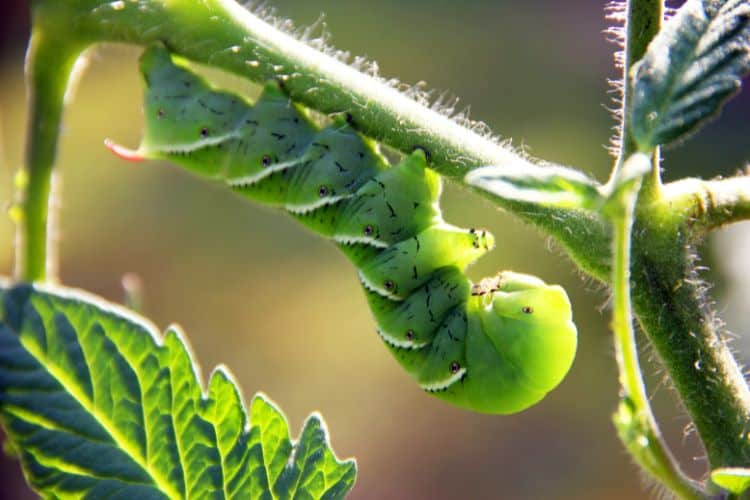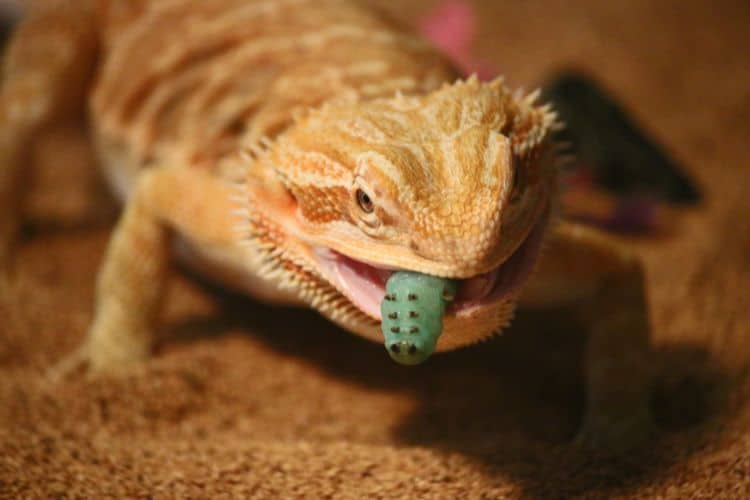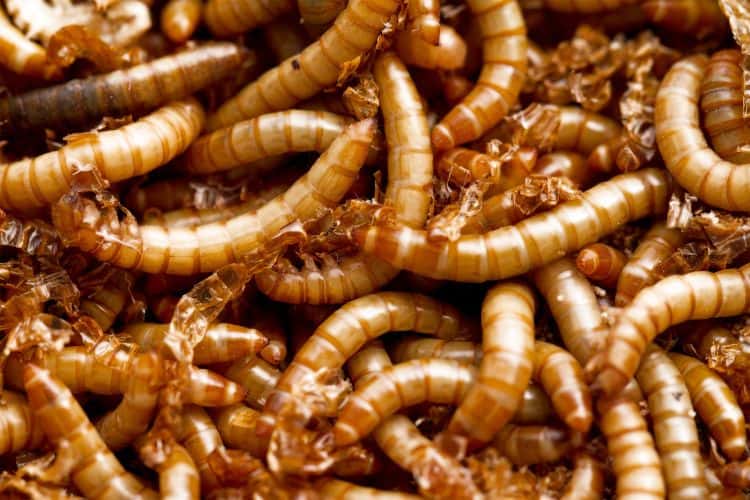As a bearded dragon owner, figuring out the right amount of hornworms to feed your pet can be confusing. How often and how many should you offer this soft, hydrating treat?
Without proper portioning, overfeeding hornworms could lead to health issues. Underfeeding could deprive your beardie of an important nutritional source.
To optimize your dragon’s diet, follow key hornworm feeding recommendations. This provides nutrition without overdoing it on the high fat content. Read on to learn the ideal hornworm feeding schedule for healthy bearded dragons.
How Many Hornworms Can a Bearded Dragon Eat a Day?

When looking at your bearded dragon’s daily diet, hornworms should be limited to 2-3 per day on average.
For adult bearded dragons, nine to fifteen hornworms per week is sufficient, with no more than five hornworms in one day. However, growing juvenile beardies need more to support their development.
Baby dragons can eat 3-5 hornworms daily, up to 20 per week. Moderation is key though, as too many hornworms can lead to obesity.
Simply stick within these healthy daily limits for both adult and juvenile bearded dragons to provide proper nutrition without overfeeding.
Are Hornworms Good for Bearded Dragons?
Hornworms are an excellent staple feeder for bearded dragons when fed properly. These soft-bodied caterpillars are packed with beneficial nutrition.
For starters, hornworms contain high quality protein to support growth and muscle development. They also boast a healthy 2:1
Additionally, hornworms are over 80% water, making them ideal for hydration. Their lower fat content compared to other feeders makes them great for juveniles and gravid females.
Finally, providing proper hornworm portions stimulates hunting behaviors and enriches your bearded dragon’s life.

Are Hornworms Enough for Bearded Dragons?
While nutritious, hornworms should be part of a varied diet. Feeding too many may lead to obesity or nutritional imbalances. Supplementing with vegetables, fruits, and other insects ensures a balanced diet. Those can include:
- Veggies: Acorn squash, alfalfa, asparagus, bell peppers, bok choy, butternut squash, and cactus leaves (prickly pear)
- Fruits: Apples, bananas, grapes, guava, peaches, pears, and watermelon
- Insects: Darkling beetles, crickets, dubia roaches, hawk moths, and BSFL
How Do You Keep Hornworms Alive for Your Bearded Dragon?
Proper housing, temperature, hydration, and diet are key to keeping hornworms alive and healthy for your bearded dragon. Hornworms thrive between 70-80°F but can be kept at 55-65°F to slow growth when needed – but avoid temperatures exceeding 90°F.
Pro tip: Provide a heat source like a low-wattage lamp to maintain ideal temperatures.
How Fast Do Hornworms Grow?
Given optimal conditions, hornworms grow rapidly, increasing 2,000 times in size from hatching to maturity in just 3-4 weeks. Their voracious appetites fuel this exponential growth.
Make sure to clean housing regularly to prevent bacteria buildup from waste. Give fresh water daily in a shallow dish as well. And finally, feed it nutritious foods, like sweet potato and bell pepper, to support their rapid growth.
Can Hornworms Bite?
Despite their spiky appearance, hornworms do not bite or sting humans. They are harmless caterpillars that feed solely on plants. Their small mandibles can’t break human skin. So, you can handle them safely when maintaining their habitat.
Can Hornworms Bite My Bearded Dragon?
Hornworms pose no risk of biting your bearded dragon. Their soft bodies and lack of teeth make it physically impossible for them to bite a bearded dragon. That said, though rare, it’s possible for it to happen.
What Other Types of Worms Can Bearded Dragons Eat?
Superworms
Superworms are nutritious feeders high in
Mealworms

A staple feeder, mealworms are readily available and packed with protein. Limit intake, however, as they are higher in fat.
Waxworms
Waxworms are high in fat so only feed occasionally. They make a good treat for gravid female dragons who need extra calories.
Phoenix Worms
Phoenix worms are a great
Silkworms
Silkworms boast an impressive protein and
To Sum Up
Hornworms provide your bearded dragon with ample hydration and
As such, make sure to feed them to juveniles 3-5 per day and adults 9-15 per week. And if you’re planning on growing hornworms to be feeders, remember that proper housing, heating, hydration, and nutrition will keep them alive and healthy.
Keep in mind to also combine hornworms with other staple feeders, like crickets and veggies for a balanced diet.

